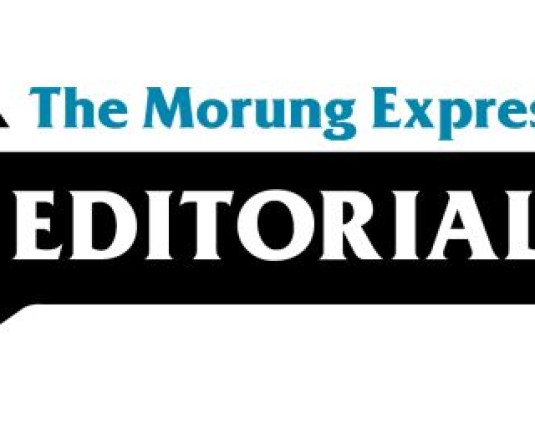
Moa Jamir
Report decodes frequent New Delhi dashes & offers policy imperatives
Undoubtedly, Nagaland’s economy heavily relies on the financial support of the Union Government to ensure the smooth functioning of the state of affairs. However, a recent report analysing the finances of States and Union Territories in India, titled ‘State of State Finances’ by PRS Legislative Research, sheds light on the actual financial health of Nagaland and suggests ways forward for policymakers to tackle the identified issues.
Three key issues highlighted in the report demand the attention of Nagaland’s policymakers. Firstly, the State’s internal revenue generation is a significant concern. The report reveals that Nagaland’s own revenue, including ‘own tax’ and ‘own non-tax’ revenue, constitutes only 12% of the total budget estimates for 2023-24, marking the lowest among states and UTs analysed. However, this predicament is not unique to Nagaland, as several states in the North-East also grapple with limited own tax revenue.
This entails dependence on revenue from outside in the forms of tax devolution or shares from Union taxes as recommended by the Finance Commission and grants-in-aid given by the Government of India (GoI), including grants recommended by the Finance Commission, grants for centrally sponsored schemes, and other grants such as GST compensation grants.
While Nagaland’s share of devolution was estimated to be 37% of the State’s total budget estimates in 2023-24, it is expected to gradually decline in the future during the rest of the 16th FC period (2025-26). Consequently, Nagaland critically relies on various GoI’s grants-in-aid, estimated to be around 51% of the total State revenue receipts for the current financial year. Hence, it can be inferred that the dependence on grants-in-aid is likely to increase in the future, given the expected fall in the post-devolution revenue deficit grants if the State does not focus on mobilising internal resources.
Adding to these challenges, Nagaland’s outstanding liabilities as of March 2023 stood at 44% of the Gross State Domestic Product (A), surpassing the combined average of all states at 30%. despite a manageable fiscal deficit of 3% of GSDP in 2023-24. The highlighted issues could exert further pressure on the State’s financial position, impacting its development activities.
The third concern stems from the aforementioned issues and revolves around Nagaland’s budget allocations for key sectors, consistently falling below the national average for most categories across all states in India. While allocations for police, education, and agriculture exceed the national average, crucial sectors like social welfare and nutrition, water supply & sanitation, urban development, and housing were estimated to be significantly below the national average.
The allocation of 11.3% to the police department or nearly three times the national average (4.2%) is somewhat justifiable due to the unique ‘law and order’ situation in Nagaland, high outlay to education (16.1%), agriculture (6.6%), and energy (4.7%) possibly include funds from centrally sponsored schemes and other GoI’s largesse; thus, prone to economic and political fluctuations.
Accordingly, the report in a way, decodes reasons behind the frequent visits of Nagaland’s political executives and other at helms of affairs to frequent dashes to national capital. Additionally, there appears to be perceptible restraint or inhibition in taking positions on various issues to avoid offending New Delhi and adversely impacting fund flows.
The report, thus, underscores the urgent need for Nagaland to diversify its revenue streams, reduce dependency on external grants, and strategically allocate funds to critical sectors. It advocates for need for a comprehensive economic strategy and policy imperatives to enhance own tax revenues, improve fiscal management, and address the State’s developmental needs. The economic future of the State depends on proactive measures that strengthen its financial foundation and enhance the well-being of its residents.
For any comment, drop a line or two to jamir.moa@gmail.com






